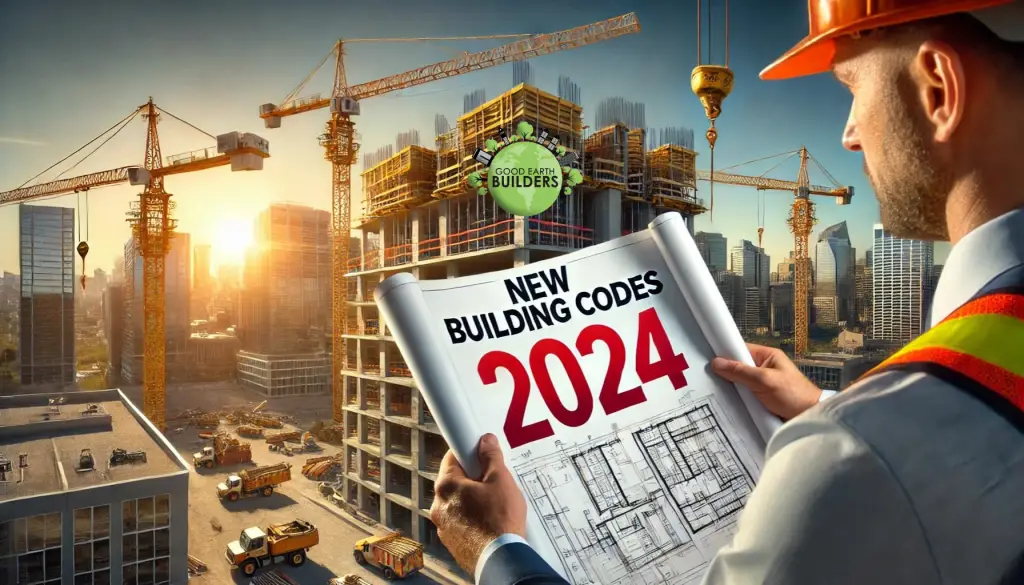Friday, September 5, 2025
Introduction: Unlocking Canada’s Premier Multi-Family Financing Tool
For Calgary developers and investors, securing the right financing can make or break a multi-family project. Among the various options available, Canada Mortgage and Housing Corporation (CMHC) funding stands out as one of the most powerful—yet often misunderstood—tools available. With Calgary facing a critical housing shortage and population growth exceeding projections, CMHC’s programs have become increasingly relevant for developers looking to build rental housing, affordable units, and innovative multi-family projects.
This comprehensive guide will walk you through the entire process of securing CMHC funding for your Calgary multi-family project. We’ll demystify the application process, explain the different programs available, provide specific Calgary-focused strategies, and give you a realistic timeline of what to expect. Whether you’re planning a 12-unit townhome complex or a 100-unit apartment building, this resource will help you determine if CMHC financing is the right choice for your project.
Why Consider CMHC Financing? The Developer’s Advantage
Before diving into the complex application process, it’s important to understand why many developers pursue CMHC financing despite its rigorous requirements. The benefits are substantial:
Enhanced Financial Terms:
- Higher Loan-to-Cost Ratios: CMHC-insured loans can cover up to 90-95% of eligible costs compared to conventional construction loans that typically cover 65-75%.
- Lower Interest Rates: Because the loan is insured, lenders offer significantly reduced rates—typically 0.5% to 2.0% below conventional construction financing rates.
- Longer Amortization Periods: Up to 50 years for rental properties, compared to 25-30 years for conventional financing.
- Interest-Only Construction Periods: Most programs allow interest-only payments during construction.
Non-Financial Benefits:
- Pre-sales Requirements Waived: Unlike conventional construction financing that often requires 50-70% pre-sales, CMHC financing may require little to no pre-leasing.
- Long-Term Partnership: CMHC can become a long-term partner, providing stability for future projects.
- Community Impact: Contributing to solving Calgary’s housing crisis while building your portfolio.
Understanding CMHC’s Multi-Family Programs: Finding the Right Fit
CMHC offers several programs tailored to different project types. Understanding which program aligns with your project is the crucial first step.
Rental Construction Financing Initiative (RCFI)
- Purpose: To encourage new rental construction by offering low-cost financing.
- Best For: Purpose-built rental buildings of 5+ units.
- Key Features:
- Up to 100% of eligible costs financed
- Interest rates approximately 1.75% below market
- 10-year term with extension options
- Must have at least 20% of units priced at 30% below market rent
MLI Select Program
- Purpose: Mortgage loan insurance for smaller multi-family projects.
- Best For: Projects with 5-19 units.
- Key Features:
- Up to 90% loan-to-value ratio
- Standard premium rates apply
- More flexible than RCFI but with less favorable terms
Affordable Housing Innovation Fund (AHIF)
- Purpose: To support innovative approaches to affordable housing.
- Best For: Projects featuring innovative construction methods, unique partnerships, or special housing models.
- Key Features:
- Repayable and non-repayable funding available
- Focus on innovation and replicability
- Up to 50% of eligible costs covered
Co-Investment Fund
- Purpose: To create new affordable housing and repair/renew existing stock.
- Best For: Projects that include deeply affordable units or heritage conversions.
- Key Features:
- Low-interest loans (as low as 0.5%) and contributions
- Must have minimum 30% of units at less than 80% of market rent
- Can be combined with other programs
Rapid Housing Initiative (RHI)
- Purpose: To quickly create new affordable housing units.
- Best For: Projects that can be completed within 12 months of funding approval.
- Key Features:
- Covers up to 100% of eligible costs
- Extremely competitive application process
- Focus on vulnerable populations
The Step-by-Step Application Process
Phase 1: Pre-Application Assessment (4-8 Weeks)
Before investing significant time and resources, determine if your project is likely to qualify.
Eligibility Checklist:
- Minimum 5 units (varies by program)
- Located in area with demonstrated housing need
- Meets energy efficiency requirements (typically ENERGY STAR® or better)
- Includes affordable housing components (percentage varies by program)
- Developer has proven track record with similar projects
Initial Documentation:
- Preliminary project pro forma
- Site control evidence (option or purchase agreement)
- Conceptual designs and unit mix
- Market study demonstrating demand
Phase 2: Proponent Summary Submission (4-6 Weeks for Response)
The Proponent Summary is your formal introduction to CMHC. This 10-15 page document should include:
- Executive summary of the project
- Detailed description of the development team’s experience
- Project financials including sources and uses of funds
- Development timeline
- Community benefits analysis
- Affordable housing strategy
Phase 3: Full Application (3-6 Months for Processing)
If your Proponent Summary is approved, you’ll proceed to the full application. This requires extensive documentation:
Financial Documents:
- Detailed construction cost breakdown from a qualified estimator
- 10-year operating pro forma with realistic assumptions
- Pre-leasing or market study data
- Developer financial statements
Technical Documents:
- Complete architectural drawings and specifications
- Engineering reports (structural, mechanical, electrical)
- Environmental site assessment
- Geotechnical report (if required)
- Energy modeling report
Legal and Regulatory Documents:
- Site plan control approval
- Building permit applications
- Zoning confirmation letter
- Environmental compliance plan
Phase 4: Due Diligence and Commitment (2-3 Months)
Once your application passes initial review, CMHC will conduct thorough due diligence:
- Independent appraisal validation
- Cost consultant review
- Legal document review
- Environmental assessment verification
- Developer background checks
Phase 5: Closing and Funding (1-2 Months)
The final stage involves legal documentation and initial funding disbursement:
- Loan agreement execution
- Insurance premium payment
- Initial advance for soft costs
- Regular progress advances during construction
Total Timeline: 9-18 months from initial inquiry to first advance
Calgary-Specific Strategies for Success
Align with Municipal Priorities
CMHC looks favorably on projects that align with municipal housing strategies. In Calgary, this means:
- Transit-Oriented Development: Projects near LRT stations or BRT corridors
- Missing Middle Housing: Projects that provide housing diversity in established neighborhoods
- Affordable Housing: Units priced below market rates
- Energy Efficiency: Projects that exceed Alberta Building Code energy requirements
Leverage Local Partnerships
Partnering with established Calgary organizations can strengthen your application:
- Community Housing Providers: Non-profits with experience managing affordable housing
- Indigenous Groups: Partnerships with First Nations can access additional funding streams
- Educational Institutions: Student housing projects near universities and colleges
- Municipal Agencies: The City of Calgary’s Affordable Housing division may provide additional support
Focus on Energy Efficiency
CMHC has increasingly emphasized environmental performance. Strategies that work well in Calgary’s climate include:
- High-Performance Building Envelopes: Superior insulation and air sealing
- Geothermal Heating: Utilizing Alberta’s geothermal potential
- Solar Ready Design: Preparing for future solar installations
- District Energy Connections: Where available in new communities
2025 Program Updates and Changes
Staying current with program changes is essential for success:
Energy Efficiency Requirements:
- Minimum ENERGY STAR® certification required for most programs
- Additional incentives available for NZER (Net Zero Energy Ready) projects
- Carbon footprint calculations now part of the evaluation process
Affordability Requirements:
- Increased emphasis on deeply affordable units (below 80% of market rent)
- Longer affordability periods required (minimum 20 years)
- Rent increase restrictions for affordable units
Digital Application Process:
- New online portal for application submission
- Reduced paperwork through document sharing platforms
- Faster response times through streamlined processes
Common Reasons for Application Rejection
Understanding why applications fail can help you avoid common pitfalls:
Financial Issues:
- Insufficient developer equity (typically need 15-25%)
- Overly optimistic revenue projections
- Underestimated construction or operating costs
- Weak financial position of development team
Project Design Problems:
- Does not meet energy efficiency requirements
- Unit mix doesn’t match demonstrated market demand
- Affordable housing component insufficient
- Site constraints or contamination issues
Developer Experience Gaps:
- Lack of experience with similar project types
- Poor track record with previous projects
- Weak team composition or key person dependencies
Application Quality:
- Incomplete or inconsistent documentation
- Unrealistic development timeline
- Failure to demonstrate community need or support
Case Study: Successful CMHC Project in Calgary
Project: The Grove on 17th (hypothetical example based on typical successful projects)
Type: 45-unit mixed-income rental building
Location: Beltline neighborhood near LRT
Program: RCFI with Co-Investment Fund components
Challenge: Conventional financing required 50% pre-leasing and offered higher interest rates, making project economics challenging.
CMHC Solution:
- 90% loan-to-cost ratio at 2.5% below market interest rates
- 50-year amortization period
- Interest-only payments during construction
- No pre-leasing requirement
Affordability Component:
- 25% of units at 30% below market rent
- 10% of units at 50% below market rent (supported by Co-Investment Fund)
Outcome: Project achieved financial viability, secured financing, and completed construction in 2024. Now operating at 98% occupancy with strong financial performance.
Is CMHC Financing Right for Your Project?
CMHC financing offers significant advantages but isn’t the right solution for every project. Consider CMHC if:
Your Project Matches These Criteria:
- Includes affordable housing components
- Meets or exceeds energy efficiency standards
- Located in area with demonstrated housing need
- You have sufficient time for the application process (9+ months)
- You can meet the equity requirements (15-25%)
Consider Conventional Financing If:
- Your project is market-rate without affordable components
- You have tight timelines (need financing in less than 6 months)
- You have pre-sales or pre-leasing already secured
- Your project doesn’t meet energy efficiency standards
Conclusion: Navigating the Path to Successful Funding
Securing CMHC financing for your Calgary multi-family project is a complex but potentially rewarding process. The significant financial advantages—lower interest rates, higher leverage, and longer amortization periods—can make otherwise marginal projects financially viable while contributing to solving Calgary’s housing crisis.
Success requires careful planning, thorough preparation, and realistic expectations about the timeline and requirements. The developers who thrive in this process are those who start early, assemble experienced teams, and create projects that align with both CMHC’s priorities and Calgary’s housing needs.
While the path is demanding, the potential rewards make it worth serious consideration for any developer looking to build multi-family housing in Calgary’s competitive market.
Why Specialized Expertise Matters in CMHC Applications
Navigating the CMHC application process requires more than just development experience—it demands specific knowledge of CMHC’s priorities, processes, and documentation requirements. The difference between approval and rejection often comes down to understanding how to present your project in alignment with CMHC’s evolving criteria.
At Good Earth Builders, we’ve guided numerous Calgary developers through the CMHC application process, from initial feasibility assessment to final funding close. Our experience includes successful applications across multiple CMHC programs, giving us insight into what makes applications successful in Calgary’s specific market context.
We understand how to position projects to highlight their strengths, address potential concerns proactively, and navigate the complex documentation requirements efficiently. Our team stays current with program changes and maintains relationships with CMHC representatives and approved lenders.
If you’re considering CMHC financing for your multi-family project and would like to discuss how our experience can strengthen your application, we invite you to contact us for a confidential consultation. Let’s explore how we can help you access Canada’s most advantageous multi-family financing programs




